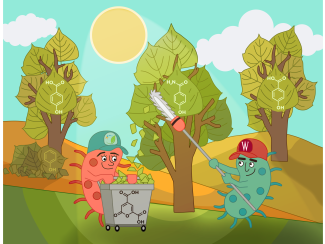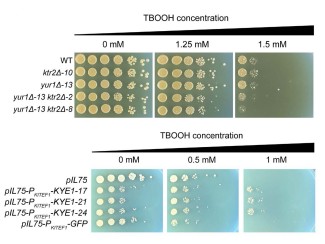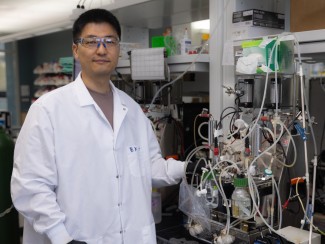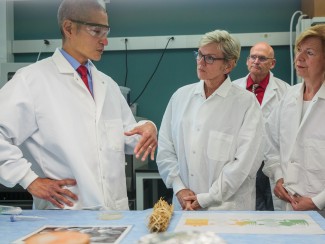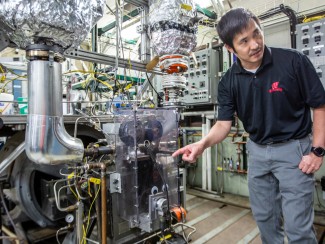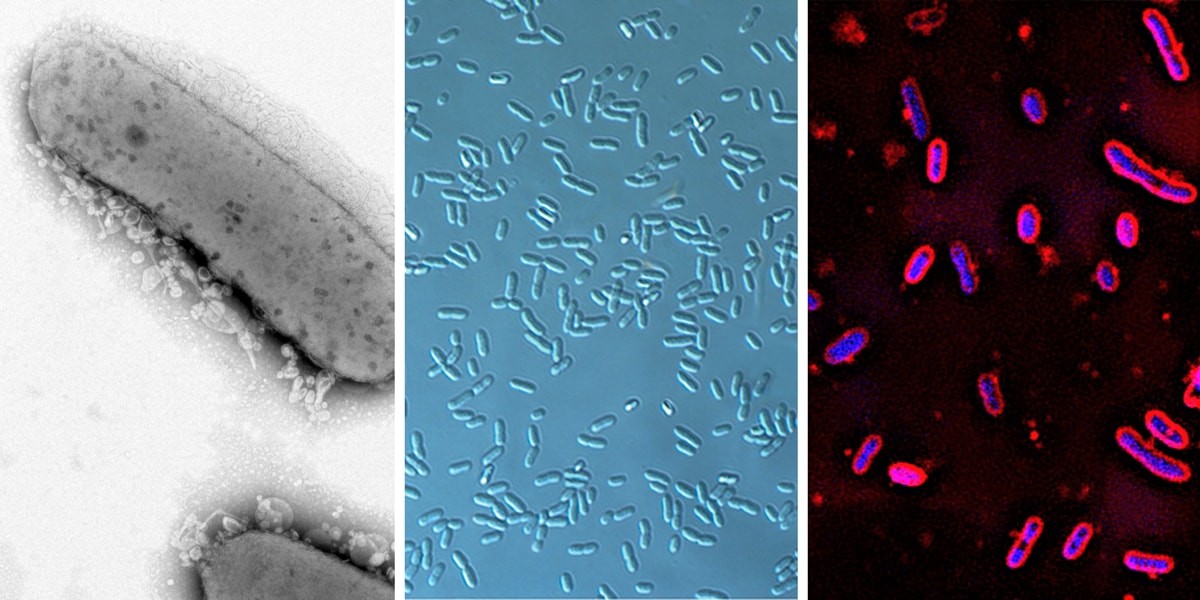
The Science
Our society relies on a wide variety of chemicals with many uses and properties. Many chemicals and fuels that are currently made from oil could instead be made from plant material by microorganisms. The most promising microbes for this purpose have broad appetites and biosynthetic potential but their genetics have not been widely studied in research labs. In three recent studies, scientists report crucial information on how to control genes in unique and promising biosynthetic microbes—Rhodobacter sphaeroides, Zymomonas mobilis, and Novosphingobium aromaticivorans.

The Impact
A viable biofuels and bioproducts industry relies on large-scale, efficient production. Scientists can use genetic engineering to boost a microbe’s ability to make chemicals quickly and efficiently, but only if they understand the bacteria’s genes and the circuitry to control them. These papers report vital information that will enable genetic engineering in Z. mobilis, R. sphaeroides, and N. aromaticivorans. This is a crucial step for optimizing these bacteria for the bio-based production of fuels and chemicals.
Summary
There is a need for microbes that can transform abundant renewable materials into a wide variety of fuels and chemicals that are currently made from petroleum. Different microbes are likely needed to produce the suite of needed chemicals from a diverse array of renewable raw materials. There is significant industrial interest in a class of bacteria called Alphaproteobacteria for this purpose. They can break down a wide array of compounds and can potentially make fuels, chemicals, and materials from renewable resources. Efforts to optimize chemical production in these bacteria are impeded by a lack of knowledge about how to predictably and quantitatively control these poorly studied metabolic activities.
In a set of recent collaborative papers, researchers from the Great Lakes Bioenergy Research Center and the University of Wisconsin–Madison Departments of Bacteriology and Biochemistry report new information on the gene promoters in several alphaproteobacteria that are used or being developed for use by industry. Promoters are regions of DNA that direct proteins to start transcribing a gene into enzymes. The research teams combined genomic, genetic, and biochemical studies to demonstrate previously unknown differences between promoters of these alphaproteobacteria and those often used by industry. The newly discovered information presented in this work supplies crucial knowledge for engineering these bacteria to either produce new products or increase their yield in both laboratory and industrial settings. This information is vital as researchers develop species like Z. mobilis, R. sphaeroides, and N. aromaticivorans to produce fuels and chemicals from abundant renewable materials.
Corresponding Authors
Robert Landick
University of Wisconsin–Madison
landick@bact.wisc.edu
Timothy Donohue
University of Wisconsin-Madison
tdonohue@bact.wisc.edu
Richard L. Gourse
University of Wisconsin–Madison
rgourse@bact.wisc.edu
Funding
This research was supported by the Great Lakes Bioenergy Research Center, U.S. Department of Energy, Office of Science, Office of Biological and Environmental Research (DE-SC0018409); the National Institutes of Health (NIH R01 GM37048 and T32GM007215); and the Jack Kent Cooke Foundation.
Publications
Vera, J.M., Ghosh, I.N., Zhang, Y., Hebert, A.S., Coon, J.J., Landick, R., “Genome-Scale Transcription-Translation Mapping Reveals Features of Zymomonas mobilis Transcription Units and Promoters,” mSystems 5:e00250-20 (2020). [DOI: 10.1128/mSystems.00250-20]
Myers, K.S., Vera, J.M., Lemmer, K.C., Linz, A.M., Landick, R., Noguera, D.R., Donohue, T.J., “Genome-Wide Identification of Transcription Start Sites in Two Alphaproteobacteria, Rhodobacter sphaeroides 2.4.1 and Novosphingobium aromaticivorans DSM 12444,” Microbiology Resource Announcements 9 (36) e00880-20 (2020) [DOI: 10.1128/MRA.00880-20]
Henry, K.K., Ross, W., Myers, K.S., Lemmer, K.C., Vera, J.M., Landick. R., Donohue, T.J., Gourse, R.L., “A majority of Rhodobacter sphaeroides promoters lack a crucial RNA polymerase recognition feature, enabling coordinated transcription activation,” Proceedings of the National Academy of Sciences (2020) [DOI: 10.1073/pnas.2010087117]

